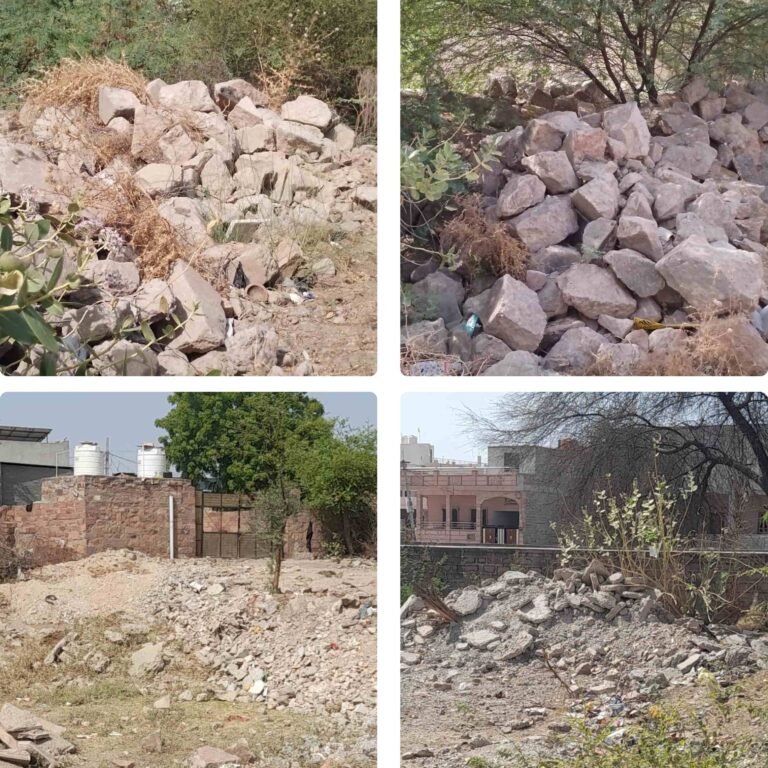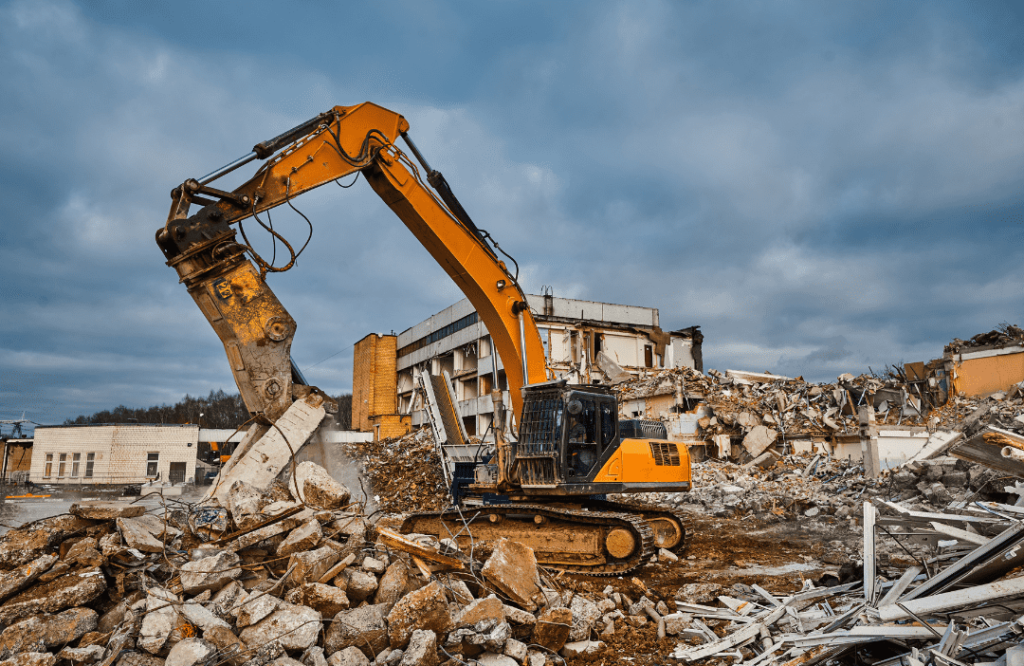Driving Infrastructure Growth with a Sustainable Vision
DCC Infra Pvt. Ltd. established in 2020, is an infrastructure and construction company, specializing in civil and mechanical engineering services. With a strong in-house team, state-of-the-art infrastructure machinery, and a growing presence across multiple states, we deliver comprehensive solutions for factories, plants, buildings, and handling construction & demolition and waste management facilities and also providing equipment on rental as well as contract bases.
From large-scale construction and demolition (C&D) to site development, equipment rental, and the installation of processing lines, DCC Infra is committed to shaping India’s infrastructure with a focus on sustainability and long-term operational management.
PROJECTS
- COMPLETED PROJECTS (10+)
- ONGOING PROJECTS (27)
- UPCOMING / BIDDED PROJECTS (15+)
FLEET OF MACHINERY
DCC Infra operates one of the most robust and diverse fleets in Government and Private sector, actively supporting all operational arms of DCC Group inluding waste management, fresh waste processing, bio-mining, and infrastructure projects.
- Excavator : 50 Units – For large scale excavation, loading and sorting.
- Backhoe Loader : 10 Units – Versatile machines for material handling and civil works.
- Hyva Trucks / Tippers : 32 Units – For efficient transportation of both processed and unprocessed material.
OUR CLIENTS
Our reputation is built on a foundation of technical expertise, consistent performance, and a client-first approach, making us a preferred name in the Indian infrastructure ecosystem.
GOVERNMENT CLIENTS
- Government of Delhi
- Government of Haryana
- Government of Gujarat
- Government of Punjab
- Contentment of Uttar Pradesh
- Government of Uttarakhand
- Government of Himachal Pradesh
- Government of Rajasthan
- Government of Maharashtra
PRIVATE CLIENTS
- Afcon Infrastructure Pvt. Ltd.
- TATA Projects Ltd – Odisha
- Tycoons Industries Pvt. Ltd.
- Shree Cement Ltd.
- Patel Engineering Ltd.
- Larson & Turbo Ltd.
- Eco Green Energy Gurugram FBD Pvt. Ltd.
OUR CREDENTIALS
- Registered in MSME, NSIC, GEM, STARTUP INDIA, ISO 9001:2015 and 45001:2018
- Labour Licensed by Government of India
- 100+ Man Power
- Civil Engineers
- Mechanical Engineers
- 52+ Awards
Our scope is majorly focused on Civil and Mechanical Engineers. At site development, civil & mechanical work, construction & demolition, and installation of complete processing lines, staff training, operational management for 1 to 20 years.
These plants are transforming the way India handles construction debris. By converting waste into recycled aggregates, sand substitutes, and other reusable materials, we are:
- Reducing landfill dependency
- Lowering the environmental impact of construction activities
- Contribution to India’s circular economy goals
- Promoting sustainable building practices across the industry
Our Mission
To establish DCC Infra as a leading construction and infrastructure company in India, known for delivering high-quality, end-to-end solutions that shape the nation’s industrial and commercial landscape.
Building a Stronger, Greener India
At DCC Infra Pvt. Ltd., infrastructure is more than construction—it’s about building futures. Whether it’s laying the foundation of a new buildings, factories, plants construction & demolition or recycling resources from C&D waste, we are committed to creating solutions that are sustainable, scalable, and future-ready.
Through these initiatives, DCC Infra is aligning infrastructure development with environment responsibility — proving that progress and sustainability can go hand in hand.
Together, let’s build a nation where growth meets green.
Why Managing C&D Waste is Important?
Proper management of construction and demolition waste processing plant waste is crucial for several reasons:
- Environmental Benefits: Proper C&D waste management reduces the environmental impact of construction and demolition waste by minimizing the need for landfills, conserving natural resources, and preventing pollution. It contributes to sustainability by promoting Reducing, Reusing, and Recycling Concrete Materials
- Economic Benefits: Effective C&D waste management practices can create economic opportunities by generating revenue through the sale of recycled materials and energy recovery. It also reduces the cost of Disposal of C&D waste, landfill fees, and potential fines or penalties for non-compliance with waste regulations.
- Social Benefits: Proper waste management improves public health and safety by reducing the risk of accidents. It also enhances the overall livability of communities by minimizing air pollution and disturbance associated with waste disposal.

Understanding Construction and Demolition (C&D) Waste

What is C&D Waste?
Construction and demolition waste refers to the waste generated during the demolition, renovation, or demolition of buildings and structures. It includes materials such as concrete, wood, bricks, metals, plastics, insulation, asphalt, gypsum & glass.
Waste is a subject of growing concern globally. According to a World Bank report, in the year 2020, a total of 2.24 billion tones of municipal solid waste was generated. The report also estimates by 2100, waste generation in the world will peak at 11 million tones daily. Such predicted trajectories of waste growth are liable to have substantial implications for the environment as well as the health, well-being and prosperity of the human race.
